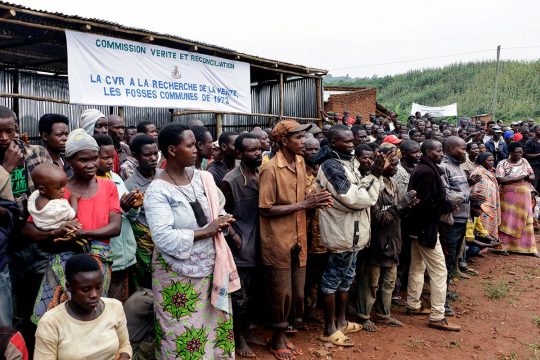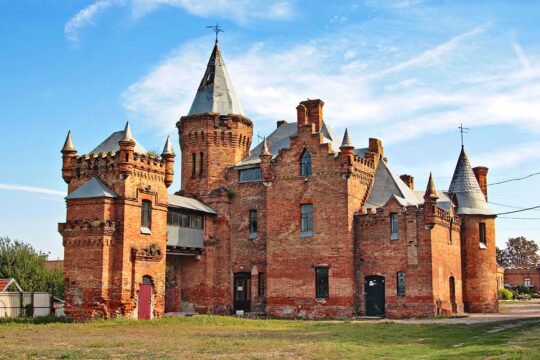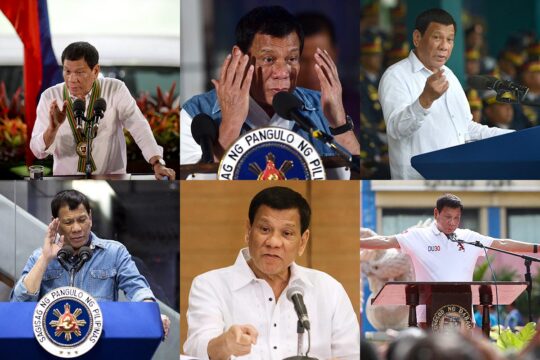The small central African state of Burundi has been mired in a bloody crisis since 2015 over President Pierre Nkurunziza's bid to cling to power, the unrest claiming 1,200 lives.
The violence has stoked fears of a return to the 1993-2006 civil war in which 300,000 people died.
As the country votes Thursday on constitutional reforms that would enable Nkurunziza to rule until 2034, here is a recap of the past three years of unrest.
- Demonstrations erupt -
On April 26, 2015, a day after Nkurunziza is declared candidate for a third term in office by his ruling CNDD-FDD party, thousands gather in the capital in protest, defying a ban on demonstrations.
It is the start of six weeks of almost daily protests that the police clamp down on with force. Several people are killed and arrested.
The opposition says the move to keep Nkurunziza in power, which he has already held for a decade, is unconstitutional and violates a peace deal that ended the civil war.
Nkurunziza says his first term, secured in 2005, does not count as he was elected by parliament -- not directly by the people -- as part of the transition from war.
- Failed coup -
On May 13 a coup attempt led by a former army chief fails. Nkurunziza fires his defence and foreign ministers in response.
In June parliament chief Pie Ntavyohanyuma announces he has fled to Belgium. He joins a long list of opposition leaders, journalists, members of civil society and disillusioned ruling party members in exile.
On July 21 Nkurunziza is re-elected for a third term in a vote held in extreme tension.
- Spiral of violence -
A series of attacks follows. In August Nkurunziza's right-hand man, General Adolphe Nshimirimana, is killed in a rocket strike.
A day later human rights activist Pierre-Claver Mbonimpa is wounded by gunfire. The former head of Burundi's army during the civil war, Colonel Jean Bikomagu, is assassinated the same month.
In December at least 87 people are killed in coordinated attacks on military sites that trigger fierce reprisals from the security forces.
In April 2016 Tutsi general Athanase Kararuza and his wife are killed.
- Abuse allegations mount -
In July 2016, the UN Security Council authorises the deployment of 228 UN police officers in Burundi, but Bujumbura rejects the resolution.
A UN probe in September accuses the government of serious rights violations, warning of a risk of "genocide" and noting its "ethnically divisive rhetoric" in a country with a history of violence between Hutus and Tutsis.
The following month Burundi informs the UN that it will leave the International Criminal Court, which has launched a preliminary investigation of allegations of killings, torture and other abuses. The withdrawal takes effect a year later.
In December Nkurunziza hints he could stand for another term in the 2020 presidential election.
In January 2017 Human Rights Watch accuses members of the ruling party's youth wing, the Imbonerakure, of having killed, tortured and beaten dozens of people.
- Heightened repression -
In October the government adopts a draft revision to the constitution which could open the way for Nkurunziza to stand for two more seven-year terms.
The next month, the ICC opens a full investigation into allegations of crimes against humanity in the country.
In April 2018 Human Rights Watch denounces increased repression and abuses as the referendum on the new constitution approaches.
A decree authorises campaigning for "yes" and "no" vote but imposes prison terms for encouraging abstention.
On April 26 a detained activist is sentenced to 32 years in prison for taking part in protests in 2015 against Nkurunziza's third term.
On May 4 the authorities suspend broadcasts by the BBC and Voice of America (VOA) by local radio stations ahead of the May 17 referendum.





